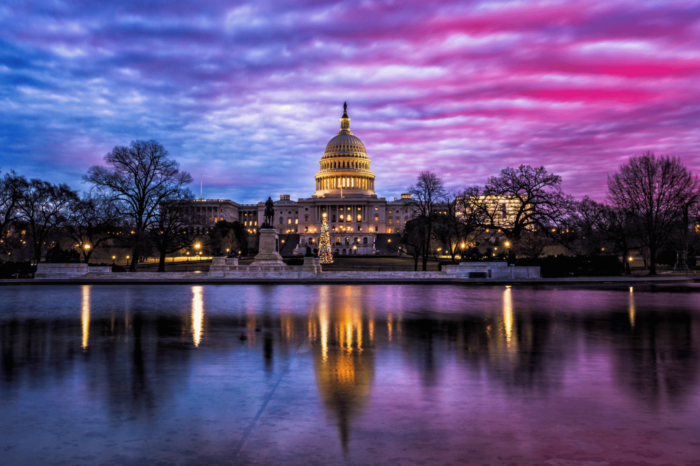History Class: A New Culture War Front
Bans and dueling polemics don’t serve students well
The decline of history in K-12 education is a topic familiar to Pioneer’s followers in Massachusetts and beyond. Previous blogs and reports have called attention to poor standardized test performances and underwhelming standards, and Pioneer’s attention has focused on curricular deficiencies and an uneven application of standards in classrooms across the country.
This issue has also made its way into the political arena. Progressives and conservatives have sponsored politically influenced alterations to history curricula across the country. Both invoke themes from current culture wars to lambast their each other’s skewed ideological and moral compass or exalt their own rectitude.
Left-wing strongholds like California have recently passed laws mandating the state review social science materials to ensure that cultural progressivism is duly represented. California has forced the adoption of new high school textbooks that reflect the political undertones of today’s politics, without providing cause or evidence for why current textbooks fail to uphold state history standards. Its school districts have banned important works of historical fiction like Mark Twain’s Huckleberry Finn, Harper Lee’s To Kill a Mockingbird, and John Steinbeck’s Of Mice and Men out of erroneous concerns of racism.
These bans don’t just discourage students from engaging with classic American literature. They also entirely ignore Twain’s subversive critique of cruel antebellum Southern racism. They ignore the intentionally complex depictions of 1950s race relations and the culture of a Depression-era farm seen in Lee’s and Steinbeck’s works.
California banning Of Mice and Men for alleged stereotyping is as absurd as conservative Idaho parents trying to ban the book for its “profanities” and “blasphemies.”
The ire over Steinbeck’s work serves as an excellent reminder that curriculum restrictions cross the increasingly deep partisan divide. Like their progressive counterparts, conservative states and conservative politicians often project their views on key culture war issues in policies that govern the teaching of history and other social sciences.
A school board in Hillsborough County, Florida no longer lets students read Shakespeare’s Romeo and Juliet in full; the board “censored” scenes it found supposedly “explicit” for teenage readers. Louisiana plans to remove “diversity studies” from all of its state-operated colleges and universities. Multiple states — New Hampshire among them — have banned the teaching of critical race theory (CRT) in K-12 schools, an indiscriminate attempt to curtail what they see as a dangerous explosion of anti-American, racialized political thought.
But the debate over CRT has obscured the concept’s true meaning and place in the social sciences. To shield students from what some may see as troubling conclusions simply blocks the kind of scrutiny given to other frameworks, including Karl Marx’s historical materialism or Francis Fukuyama’s “End of History” thesis.
That simply means there will be fewer discussions in states with bans and districts with content restrictions.
With a majority of the American public now well aware that some people — progressives and conservatives alike — manipulate history education and censor classroom debates, recovering trust in history education is an imperative.
A solution might come via teachers and educators. They can make students more aware that the facts of history are themselves political, constantly manipulated to advance parties’ and politicians’ own interests. Curricular standards that offer this guidance would weaken biased assaults from either ideological side.
My former high school’s humanities program offers one compelling test case. Our U.S. history class read three books over the year-long curriculum. Our principal text was The American Pageant by noted Pioneer contributor David Kennedy. We also read Howard Zinn’s A People’s History of the United States, and its retort, A Patriot’s History of the United States, by Larry Schweikart and Michael Allen.
This three-book approach ensured that we received a well-rounded interpretation of each historical event. Kennedy provided the facts and the general narrative developments, and through Zinn and Schweikart/Allen we saw how these same facts and narrative developments factored into the former’s unabashed leftism and the latter duo’s unabashed conservatism.
Exposed to dueling polemics, we were able to triangulate a reasoned position on events like New Deal Progressivism and the Reagan Revolution, respective pet topics of the ideological authors. We looked deeper at the events, wars, and societal changes we were studying, developing a serious intellectual empathy for good-faith historical interpretations from both sides of the political divide.
In a better learning environment, high schoolers across the country would read A People’s History and A Patriot’s History
Until then, educators must acknowledge history’s politicization as a bipartisan problem, working against biased efforts to shape how young people learn about the past.
Jude Iredell is a Roger Perry Civics Intern with the Pioneer Institute. He is a senior at Pomona College pursuing a bachelor’s in history. He can be reached via email, LinkedIn, or by letter to Pioneer’s office in Boston.



